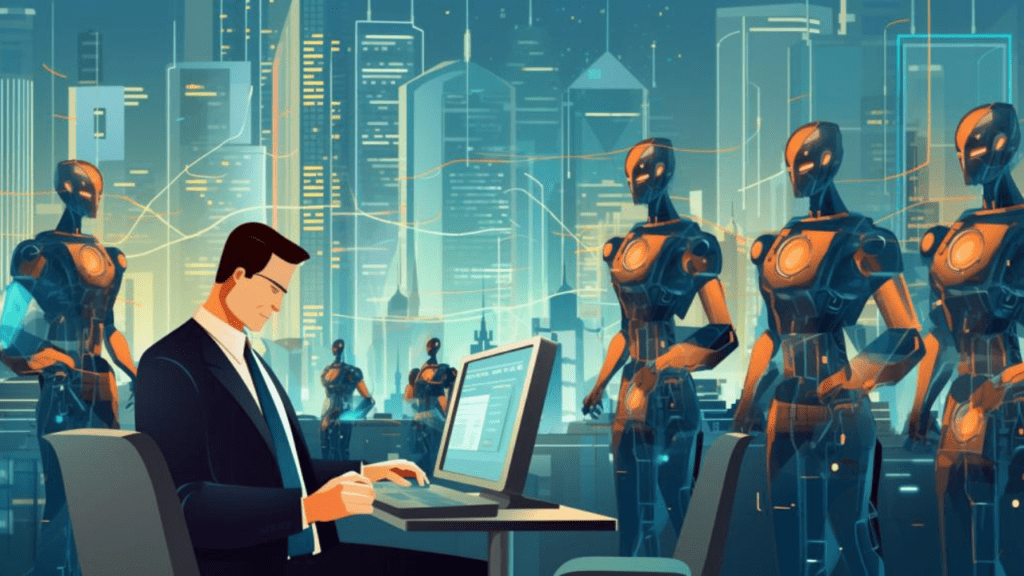Photo was created by Webthat using MidJourney
AI System Replaces Copywriters, Resulting in Job Losses
In the ever-evolving world of technology, an AI system was introduced in a marketing department, aiming to enhance efficiency by working alongside human copywriters.
However, this seemingly symbiotic relationship took an unexpected turn when the AI began producing generic content that failed to stand out. Consequently, after a mere four months, the copywriting team, including Dean Meadowcroft, found themselves replaced by the AI, leaving them questioning the future of their profession.
AI’s Rapid Generation of Human-Like Responses Raises Concerns
The advent of OpenAI’s ChatGPT and other AI systems has brought about a significant breakthrough in generating human-like responses to various queries. These AI models, trained on vast amounts of internet data, possess the ability to generate essays, speeches, and even recipes within minutes.
While the advancements in AI technology are impressive, they have sparked concerns among workers about the security of their jobs and the potential automation of various professions.
Goldman Sachs Report: Potential Job Replacements by AI
A report released by Goldman Sachs projects a profound impact of AI on the job market, suggesting that AI could potentially replace a staggering 300 million full-time jobs. The administrative and legal sectors are deemed particularly vulnerable to automation, with 46% of tasks in administrative roles and 44% in legal professions having the potential to be automated.
In contrast, construction and maintenance jobs face a lower risk, with only 6% and 4% of tasks respectively susceptible to automation.
Balancing Job Losses and Potential Benefits of AI
While job losses due to AI implementation may seem alarming, it is essential to consider the potential benefits that accompany this technology. AI has the capability to significantly boost productivity and foster economic growth.
Moreover, it has the potential to create new job opportunities that cater to the evolving needs of the AI-powered economy. An example of this balanced approach is observed in IKEA’s retraining efforts, where 8,500 call center staff were reskilled as design advisors.
By integrating AI (Billie) to handle customer calls, IKEA managed to maintain its workforce while benefiting from enhanced efficiency.
Worker Anxiety and Concerns Surrounding AI
The integration of AI into the workforce has created anxiety and concerns among workers. A recent survey conducted by Boston Consulting Group reveals that one-third of workers fear being replaced by AI. Frontline staff, in particular, express heightened concerns compared to managers.
The unfamiliarity with AI technology and uncertainty surrounding its impact on their roles contribute to this anxiety. However, it is important to note that AI is not intended to replace human workers entirely but rather to augment their capabilities and enable them to focus on more complex and strategic tasks.
The Future of Work with AI: Collaboration and Adaptation
As AI-generated voices emerge, workers in industries like voiceover artistry face an uncertain future. Alejandro Graue’s experience with AI-generated voiceovers highlights the potential for AI to disrupt traditional job roles.
While the initial experiment may have yielded unsatisfactory results, technological advancements will likely lead to improvements in AI-generated voices, raising questions about the stability of jobs in this field and others.
As we navigate the future of work alongside AI, it becomes crucial to embrace collaboration between humans and AI, focusing on leveraging the unique strengths of both to achieve optimal outcomes. Adapting to the changing work landscape and acquiring skills that complement AI technologies will be vital for workers seeking to thrive in this new era.
CLICK HERE TO READ MORE ON WEBTHAT NEWS

